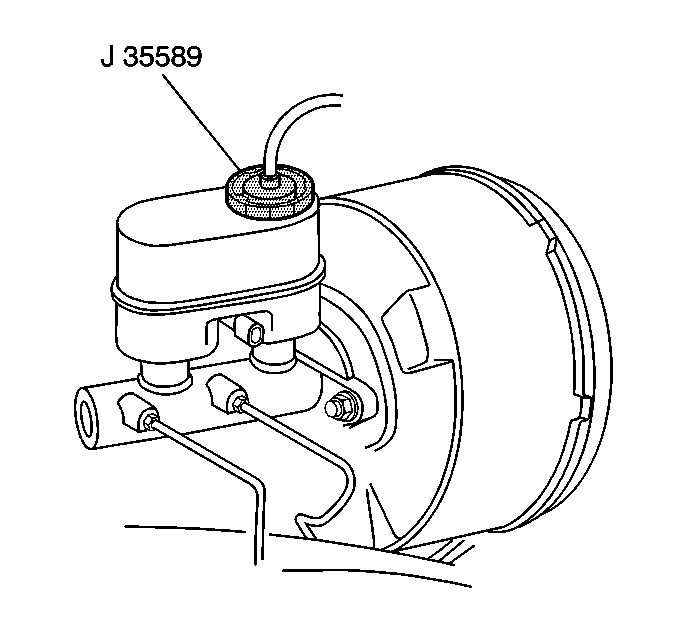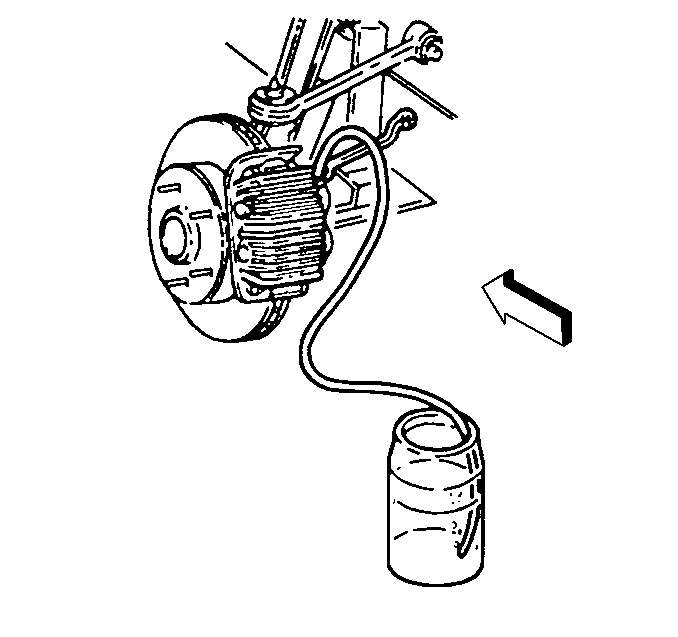For 1990-2009 cars only
Tools Required
J 35589 Pressure Bleeding Adapter
- Remove the master cylinder reservoir cap. Replace with J 35589
- Charge the bleeder to 140-172 kPa (20-25 psi).
- Connect the hose to J 35589
- Raise the vehicle and support. Refer to Lifting and Jacking the Vehicle in General Information
- If it is necessary to bleed all of the brake calipers, the following sequence should be used:
- Place the proper size box end wrench, or equivalent, over the brake caliper bleed screw. Attach a clear tube over the screw and allow the tube to hang submerged in a clear container partially filled with brake fluid.
- Open the brake caliper bleed screw at least ¾ of a turn and allow the brake fluid flow to continue until no air is seen in the brake fluid. Stroke the brake pedal while pressure bleeding.
- Close the brake caliper bleed screw.
- Repeat Steps 6 through 8 until all calipers have been bled.
- Lower vehicle.
- Check the brake pedal for sponginess. Auto bleed the modulator and repeat the entire bleeding procedure to correct this condition. Refer to Automated Brake System Bleeding in ABS.
- Remove the brake bleeding equipment from the master cylinder.


| 5.1. | Right rear |
| 5.2. | Left rear |
| 5.3. | Right front |
| 5.4. | Left front |
Tighten
Tighten the brake caliper bleed screw to 12 N·m (106 lb in).
Notice: Use the correct fastener in the correct location. Replacement fasteners must be the correct part number for that application. Fasteners requiring replacement or fasteners requiring the use of thread locking compound or sealant are identified in the service procedure. Do not use paints, lubricants, or corrosion inhibitors on fasteners or fastener joint surfaces unless specified. These coatings affect fastener torque and joint clamping force and may damage the fastener. Use the correct tightening sequence and specifications when installing fasteners in order to avoid damage to parts and systems.
